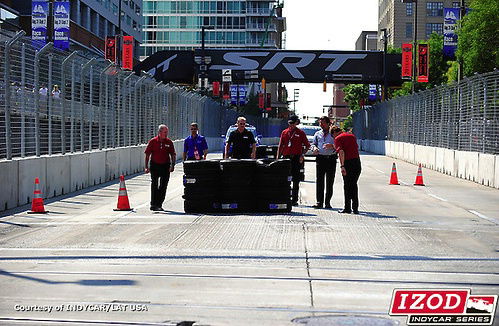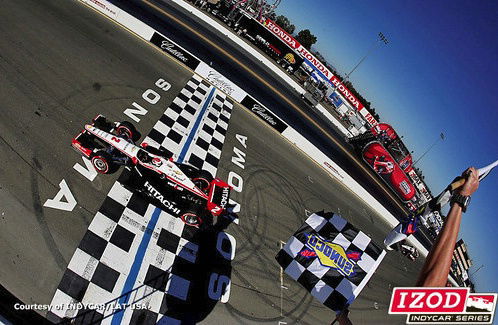Push-to-pass delay dropped for Baltimore

The IZOD IndyCar Series has decided not to include an activation delay on the use of the push-to-pass turbocharger boost system, used to help overtaking at street and road courses.
A feature of IndyCar in 2009-11 but dropped at the start of this year while teams bedded in their new-specification chassis and engines, the system was reintroduced this season ahead of the Edmonton round. Each press of the push-to-pass button puts extra turbocharger boost and 200 additional RPMs from their 2.2-litre V6 engines at the driver's disposal for a limited period.
However at the next race at Toronto, Helio Castroneves used most of his push-to-pass allocation to protect his lead - with help from his pit crew, who were able to relay realtime advice from the timing and scoring system telling him when his pursuers were deploying their own boost to attempt overtaking moves.
As a result the organisers introduced a five second delay between the push-to-pass button being pressed and the power actually kicking in - meaning it could still be used for attacking, but could no longer be used defensively in time. That proved unpopular with drivers who spoke out against it, with championship leader Will Power particularly critical.
"I think it was stupid, honestly," he said after the Mid-Ohio event. "The way they got it, you have to have a certain throttle percentage. You'd hit it and get in the corner and it would unclick itself. It was useless. Honestly, I didn't find it useful at all."
Scott Dixon was another driver to say that the introduction of a delay had meant he no longer even used it. "You could tell everybody completely messed it up," he said.
The delay was reduced to 3.5 seconds at Sonoma, but was still widely disliked by the competitors, and as a result the series has decided not to include any delay at all for the Grand Prix of Baltimore this weekend, the final road course of the 2012 season.
"We've had two races without the activation delay and two races with it," said IndyCar's director of Engine Development, Trevor Knowles. "Based on driver feedback, we're adjusting the parameters of push to pass to fit this particular circuit."
One of those parameters is the activation delay being set to zero seconds. In total, drivers have 90 seconds of push-to-pass activation for the entire race, with each activation ending as soon as the drivers lifts off the throttle or after a maximum of 20 seconds. There's no delay or recharging time before activations.
Push-to-pass isn't allowed at oval events, and therefore will not be a feature of the season finale at the Auto Club Speedway in Fontana, California on September 15.

